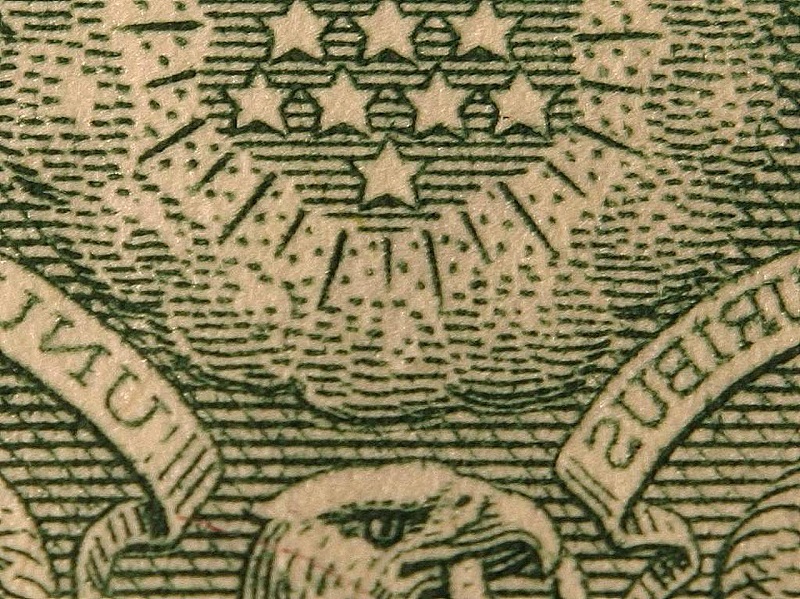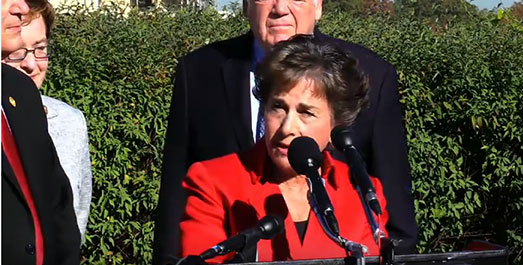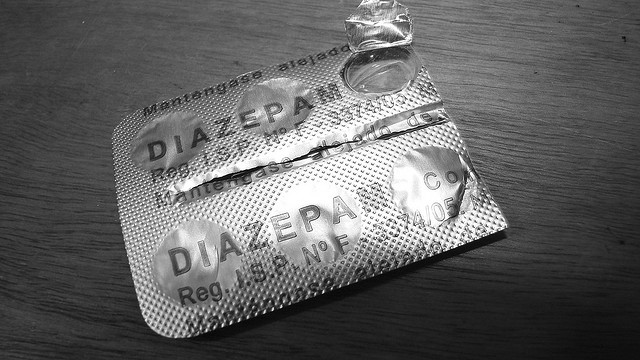by Gabriel Levitt, President, PharmacyChecker.com and Prescription Justice | Mar 2, 2016 | Drug Prices, Generic drugs, Skipping medications, Specialty Drugs
According to a new AARP drug price report, in 2006 the average cost of prescription medication increased by 3.6%, just a little higher than the rate of inflation in the U.S. which was 3.2% that year. In 2013, in stark contrast, drug costs were up 9.4% above 2012 with a corresponding rate of inflation of 1.5%. In fact, the average annual cost of popular medications for chronic conditions used by seniors went from $4,140 in 2005 to $11,341 in 2013.
Many of these brand drugs are covered by private and public pharmacy benefit plans, including Part D – but too often they are not, which leaves Americans having to foot the bill out of pocket. Even covered brand name drugs often mean very high co-payments or co-insurance. If you’re paying out of pocket and can’t afford your brand name drug, international online pharmacies have much lower prices – an average of 84% less on a basket of popular medications.
In the past, AARP has been criticized, not surprisingly by the pharmaceutical industry, for just looking at brand name drug prices in its drug price reports and not generics, which help moderate increases. But this latest report measured 622 drugs, a large basket that included brand, specialty and generic drugs. Brand and specialty drug prices were up an average of 12.9% and 10.6%, respectively, compared to a decrease in average generic drug prices of 4%.
AARP’s report concludes that it’s possible, “we can no longer rely on lower priced generics to counterbalance the price trends seen in the brand name and specialty prescription drug markets.” And things appear to be getting worse.
After reading the report, which looked at prices up to 2013, I was curious to find out how much brand name prices increased last year. In 2015, brand name drugs still under patent were up almost 15%, and generics, which tend to get cheaper, had even increased by almost 3% on average [Source]. These drug price increases corresponded with an inflation rate increase of .1%!
With about 30 million Americans still uninsured, many more millions of underinsured with inadequate pharmacy benefits, and drug prices continuing their ascent, tens of millions of Americans will continue to forgo prescribed medication entirely. Fewer will have to make this choice by comparing drug prices among safe international online pharmacies and local pharmacies using prescription discount cards at www.pharmacychecker.com.
Tagged with: AARP Drug Price Report
by Gabriel Levitt, President, PharmacyChecker.com and Prescription Justice | Jan 8, 2016 | Controlled Drugs, Drug Prices, Drug Safety, Generic drugs, Local Pharmacies, Online Pharmacies
I like showing Americans who are searching online for affordable medication, often from foreign pharmacies, that their mom and pop pharmacy on Main Street U.S.A. can actually offer a better deal. It’s actually pretty common. The generic version of Valium, diazepam, which treats anxiety, is a perfect example. Bottom line: no need to buy online or from Canada to save money.
(more…)
Tagged with: diazepam, Drug Prices, local pharmacies, Online Pharmacies, Valium
by Gabriel Levitt, President, PharmacyChecker.com and Prescription Justice | Dec 17, 2015 | Drug Prices, Generic drugs
 I’m talking about super-sized supermarket Publix, which operates over 1000 stores throughout the Southeastern U.S. Sure, it’s not the only superstore to offer this but I happened to come across its Free Medication Program while researching drug prices today: and I want to talk about it.
I’m talking about super-sized supermarket Publix, which operates over 1000 stores throughout the Southeastern U.S. Sure, it’s not the only superstore to offer this but I happened to come across its Free Medication Program while researching drug prices today: and I want to talk about it.
There’s a lot of yelling and screaming and downright hostility toward the pharmaceutical industry (much of it warranted), including against generic drug companies, who are under scrutiny because some old generics have increased in price by thousands of percent. So here’s a little relief…free medication.
The list is not long but the following drugs are free at Publix pharmacies: Amlodipine, Lisinopril, and Metformin. Bring your script and walk out with a 90 day supply free. If you’re prescribed a 14-day antibiotic treatment of Amoxicillin, Ampicillin, Sulfamethoxazole/Trimethoprim, Ciprofloxacin (but not its XR version) and Penicillin VK – free at Public Pharmacies.
Now most of us don’t live near a Publix. Very low cost and free drug programs at U.S. retailers and chain pharmacies were launched almost a decade ago when Walmart announced its $4 prescription drug programs. The programs are still around and a report is long overdue about them. I promise to bring you a broader list of these free medication programs in the New Year.
Why would a pharmacy offer medications for free? If you’re looking for a full explanation, here’s some good journalism in Toledo’s The Blaze from 2006. It has something to do with the medication being a “loss leader” for the company. Then again, who cares – the meds are free.
Tagged with: affordable prescriptions, Amlopidine, Amoxicillin, Ampicillin, Ciprofloxacin, Drug Prices, Lisinopril, local pharmacies, Metformin, Penicillin VK, Publix, retail pharmacies, Sulfamethoxazole/Trimethoprim, United States
by Gabriel Levitt, President, PharmacyChecker.com and Prescription Justice | Nov 6, 2015 | Drug Importation, Drug Prices, Generic drugs, Government

Americans should know about the heat coming down against the pharmaceutical industry from certain members of Congress in an effort to combat the public health crisis of high drug prices. This week, nine lawmakers from the House of Representatives announced the formation of a new group called the Affordable Drug Pricing Task Force. Its goals are clear, to lower cost barriers to life saving medication and to demand greater transparency about drug cost decisions made by the pharmaceutical industry.
Two pertinent facts were continually raised. One, high drug prices are the No. 1 healthcare issue in America. Two, medication prices are much lower in other countries, about 50% lower in the UK.
To announce the task force, a press conference was led by Congressman Lloyd Doggett (D-TX) and included speeches by Rep. Sander Levin (D-MI), Rep. Jan Schakowsky (D-MI), Rep. Jim McDermott (D-WA), Rep. Rosa DeLauro (D-CT), Rep. Peter Welch (D-VT), Rep. Marcy Kaptur (D-OH), Rep. David Cicilline (D-RI), and Congressman Elijah Cummings (D-MD). We wrote about Rep. Cummings’ efforts a couple of weeks back as Congressman Cummings noted PharmacyChecker.com as a supporter of the Prescription Drug Affordability Act of 2015. I also want to note thank Congresswoman DeLauro for recently becoming a co-sponsor of the Personal Drug Importation Fairness Act of 2015.
The speakers have supported a variety of solutions to lowering drug prices, including allowing Medicare to negotiate drug prices with pharmaceutical companies; ending “pay-for-delay,” a practice sometimes described as payoffs by brand drug patent holders to generic drug companies to that the latter will postpone launching a lower cost generic; reforming prescription drug importation laws to make it easier to access lower cost medications from other countries; and greater oversight into pharmaceutical industry pricing practices.
Some highlighted quotes or phrases:
- “If the people are not able to afford their prescriptions that means they suffer and in some instances they die.” Rep. Cummings.
- McDermott’s take: “The pharmaceutical companies have got the Congress in the palm of their hand and they will not let us go.”
- The problem of high drug prices was referred to as an “emergency situation” by Rep. Sander Levin.
It’s no secret that I support much of this agenda. But what is needed is bipartisanship, and I’m waiting for these leaders, as part of their noble effort, to consider looking critically at the Obama administration’s record on personal drug importation and online pharmacies. Candidate Obama in 2007 supported reforming the law to make it easier for Americans to import lower cost medication. Unfortunately, in its efforts to pass the Affordable Care Act, which I supported, the Obama administration made a deal with big pharma to change course and dump drug importation legal reform in exchange for pharma’s support for Obamacare and agreement to new discounts on Medicare Part D medications through the coverage gap (the “Donut hole”).
On that final note, the Obama administration, though the Department of Health and Human Services (HHS), has announced a forum on drug prices to be held on November 20th. Maybe we’ll learn that the Obama administration’s position on prescription drug importation has returned to one more in line with most Americans. We’ll keep our fingers crossed.
(You can view the complete press conference below)
Members of the newly formed Affordable Drug Pricing Task Force will hold a press conference announcing meaningful action to combat the skyrocketing costs of pharmaceuticals. Who: Reps. Cummings, Doggett, McDermott, DeLauro, Schakowsky, and Welch.
Affordable Drug Pricing Task Force Press Conference – Nov 4, 2015
Tagged with: Affordable Drug Pricing Task Force, Congress, David Cicilline, Drug Importation, Elijah Cummings, generic drugs, Jan Schakowsky, Jim McDermott, Marcy Kaptur, Online Pharmacies, Personal Drug Importation Fairness Act, Peter Welch, Rosa DeLauro, Sander Levin, United States
by PharmacyChecker.com | Sep 22, 2015 | Drug Prices, Generic drugs, Online Pharmacies, Specialty Drugs

Martin Shkreli, founder and chief executive of Turing Pharmaceuticals. Not that cool.
It’s no secret that Americans are unhappy with Big Pharma. Pharmaceutical companies regularly rank as one of the least loved industries, right up there (or down there) with Big Oil and Big Government. And while this has usually been expressed as contempt towards the industry as a whole, recently the negative spotlight is shining brightly on one man: Martin Shkreli, hedge fund investor and drug company entrepreneur.
Soon after his company Turing Pharmaceuticals purchased the marketing rights to the drug Daraprim, Shkreli raised the price of Daraprim from $13.50 per pill to $750.00 per pill in the U.S. market where Turing has exclusive marketing rights. But that only affects America! Thankfully, consumers can purchase Daraprim, marketed by GlaxoSmithKline in the UK, from a verified international online pharmacy for as low as only $1.53 per pill. A mere savings of 99.8%.
Daraprim is used to treat toxoplasmosis, a disease that results from infection with the Toxoplasma gondii parasite. This parasite is very common (in fact it’s been estimated that 22% of U.S. population have been exposed to it and it usually infects people who have eaten undercooked meat, raw vegetables, or have handled cat feces. In healthy people it usually only causes flu-like systems. However this disease can cause severe complications in people with compromised immune systems, such as those with HIV or cancer, including brain lesions and seizures. The disease can also be very harmful to women who are pregnant, leading to a stillborn child or a child born with birth defects.
It’s not rare for medications that treat a rare disease or a small patient population to be expensive. Moreover, it’s understandable that pharmaceutical companies want to recoup the extensive costs of developing a drug and make a profit, although Big Pharma’s lust for profits appears insatiable. But let’s take a deep breath…Daraprim is not some new wonder drug. It was originally developed and marketed by Burroughs Wellcome and patented back in 1953 (the patent expired in the 70s). A relatively inexpensive drug, it was long manufactured by GlaxoSmithKline, until that company sold the U.S. marketing rights to CorePharma in 2010. Impax Laboratories later bought CorePharma, and turned around and sold the rights to the drug to Turing.
At that point Mr. Shkreli and our friends at Turing decided to change how Daraprim was distributed. Hospitals, instead of going to a wholesaler, now had to order from Turing’s “Daraprim Direct” program. Patients, instead of going to their neighborhood pharmacy had to order from Walgreen’s Specialty Pharmacy. And since there is no approved generic in the United States, patients who need Daraprim face monopoly pricing, with no competition to Turing on the horizon. Many people of all political stripes seem to be enraged over price gouging like this, because it seems like they’re getting the worst of corporate monopoly and government protectionism.
In order to get this medication, American consumers may need to look across the pond. As mentioned above, GlaxoSmithKline may have sold their U.S. marketing rights to Daraprim in 2010 but not in many countries around the world, such as England, where it’s sold for pennies to the pill!
It only seems fair, not to mention in the interest of public health, that an important drug like this, that’s listed on the World Health Organization’s List of Essential Medicines, should not be one subject to the twisted reality and bizarre rationalizing of hedge fund managers.
Tagged with: Daraprim, GlaxoSmithKline, Martin Shkreli, toxoplasmosis, Turing Pharmaceuticals, UK
by Gabriel Levitt, President, PharmacyChecker.com and Prescription Justice | Aug 27, 2015 | Drug Prices, Generic drugs, Online Pharmacies, Your Stories
[This is an unedited message from a consumer. You’ll note that, unfortunately, international online pharmacies raise their prices, too! If you have a story you’d like to tell, email us at yourstories@pharmacychecker.com.]
“I chose to order my Celebrex 200mg from a Canadian pharmacy when the price from Pfizer skyrocketed and the generic did the same. I assume you know that Pfizer selected a certain few US generic manufacturers to make it. They have kept the generic price almost as high as Pfizer’s. That is an unavoidable result of price control by Pfizer.
I have had good results from [Pharmacy Name Redacted]* although they have raised the price for 90 about $10 each time I have refilled. May switch to a different one from your list next time.”
-Ann K.
*PharmacyChecker does not wish to highlight specific international online pharmacies in our blog. You can view the current list of online pharmacies that sell branded and generic versions of Celebrex.



 I’m talking about super-sized supermarket Publix, which operates over 1000 stores throughout the Southeastern U.S. Sure, it’s not the only superstore to offer this but I happened to come across its
I’m talking about super-sized supermarket Publix, which operates over 1000 stores throughout the Southeastern U.S. Sure, it’s not the only superstore to offer this but I happened to come across its 

